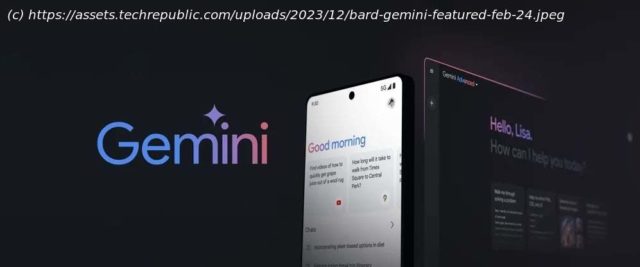Gemini is a conversational artificial intelligence tool by Google. Learn how Gemini works, and how to make the most of it with this cheat sheet.
Gemini is Google’s artificial intelligence ecosystem, including a chatbot that generates responses to user-provided natural language prompts. In response to a prompt, Gemini can pull information from the internet and present a response. The large language model behind Gemini delivers the response in natural language — in contrast to a standard Google search, where a result consists of a snippet of information or a list of links.
Google announced Gemini (as Bard) in February 2023 after OpenAI and Microsoft both garnered attention for AI chatbot systems. And in May 2023, AI advancements featured prominently in Google’s I/O event. On Feb. 8, 2024, Google renamed the AI products formerly named Bard to Gemini.What is Google Gemini used for?
Google Gemini is the overarching term for an ecosystem of generative AI models and services, including natural language querying, assistants, content generation and code writing. Gemini’s prompt-response process can help you obtain answers faster than a standard Google search sequence.
Google search requires you to enter a natural language query or keywords, follow links, review content and then compile the results or repeat the process with a refined search.
With Gemini, you enter a prompt, then review the response. If the response isn’t exactly what you want, you have at least three options:
View other drafts to display alternatively formatted responses.
Regenerate the response to have the system craft a new reply.
Follow-up with another prompt.
Gemini can handle all sorts of tasks, but many of the most common uses are covered by the categories of capabilities detailed below.Google Gemini can summarize
As a generative AI assistant powered by a large language model, Gemini can adeptly summarize text. For example, provide a link to a web page and ask Gemini to summarize the contents, e.g.:
You also can suggest a specific length if you want a particular degree of brevity, such as “Please summarize in 100 words.”Google Gemini can compare
Gemini can compare two or more items. In many cases, when you ask Gemini to compare things, the system will display some of the data in a table. For example, if you prompt Gemini:
Similarly, you may ask Gemini to compare web pages.Google Gemini can suggest
Gemini may serve as a suggestion engine for products, services or activities. Enter the title of books, music or movies you like, then ask Gemini to suggest others. This can be useful when you’re researching unfamiliar topics. For example, you might try:Google Gemini can explain
When you want to learn about a topic or historical event, you can ask Gemini to explain it to you. If you like, you may suggest a desired level in order to guide the system toward an explanation that may be either easier to understand or more detailed. For a general overview of a core technology that helps make Gemini work, you might ask:Google Gemini can brainstorm
One of the best uses of a chatbot is to gather a long list of ideas. Ask Gemini to “Brainstorm ideas for…” followed by whatever topic you wish, such as a new project, promotional effort or paper. Encourage Gemini to provide creative, unusual or inventive ideas for additional variety in the responses.Google Gemini can code and debug
In April 2023, Google added the ability to create and help debug code in more than 20 programming languages. When you ask for code, make sure to specify the programming language and describe in as much detail as possible the code you need. If the code generated doesn’t work, let Gemini know what exactly went awry, and ask for a suggested fix or for help interpreting an error code.Gemini can draft text
Gemini can help you write, too. As with most prompts, provide as much detail about the topic, length, format (blog post, poem, essay, book report, etc.
Start
United States
USA — IT Google Gemini Cheat Sheet (Formerly Google Bard): What Is Google Gemini, and...






